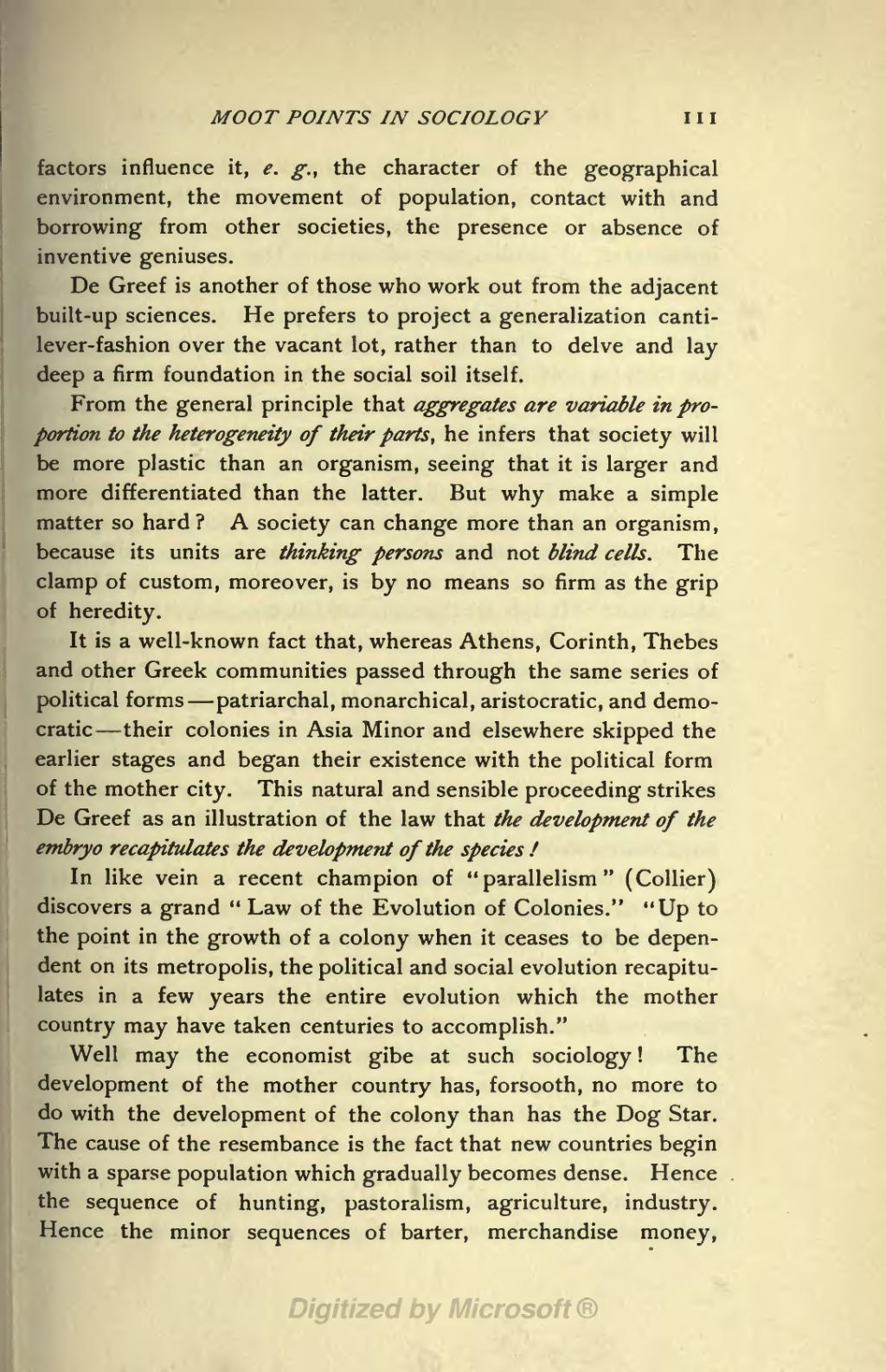MOOT POINTS IN SOCIOLOGY 1 1 1
factors influence it, e. g., the character of the geographical environment, the movement of population, contact with and borrowing from other societies, the presence or absence of inventive geniuses.
De Greef is another of those who work out from the adjacent built-up sciences. He prefers to project a generalization canti- lever-fashion over the vacant lot, rather than to delve and lay deep a firm foundation in the social soil itself.
From the general principle that aggregates are variable in pro- portion to the heterogeneity of their parts, he infers that society will be more plastic than an organism, seeing that it is larger and more differentiated than the latter. But why make a simple matter so hard ? A society can change more than an organism, because its units are thinking persons and not blind cells. The clamp of custom, moreover, is by no means so firm as the grip of heredity.
It is a well-known fact that, whereas Athens, Corinth, Thebes and other Greek communities passed through the same series of political forms patriarchal, monarchical, aristocratic, and demo- cratic their colonies in Asia Minor and elsewhere skipped the earlier stages and began their existence with the political form of the mother city. This natural and sensible proceeding strikes De Greef as an illustration of the law that the development of the embryo recapitulates the development of the species !
In like vein a recent champion of "parallelism" (Collier) discovers a grand " Law of the Evolution of Colonies." "Up to the point in the growth of a colony when it ceases to be depen- dent on its metropolis, the political and social evolution recapitu- lates in a few years the entire evolution which the mother country may have taken centuries to accomplish."
Well may the economist gibe at such sociology ! The development of the mother country has, forsooth, no more to do with the development of the colony than has the Dog Star. The cause of the resembance is the fact that new countries begin with a sparse population which gradually becomes dense. Hence the sequence of hunting, pastoralism, agriculture, industry. Hence the minor sequences of barter, merchandise money,
